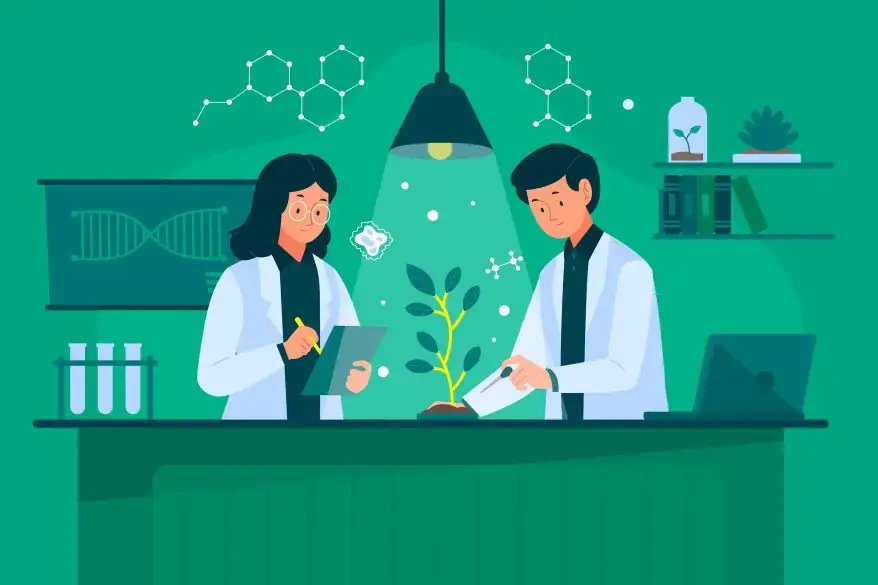Top 10 Careers in Pharmacy for 2025
The world of pharmacy is changing fast, and you’re in the perfect position to ride the wave. Moreover, by 2025, careers in pharmacy will find themselves in high demand, thanks to advancements in technology and shifts in healthcare needs. Additionally, the pharmaceutical industry is evolving, with exciting opportunities in areas like personalized medicine, tele pharmacy, and even AI-driven drug development.
Why is this happening? Particularly, the COVID-19 pandemic reshaped priorities, creating a surge in roles like vaccine development and chronic disease management. Plus, the stability of careers in pharmacy makes it one of the most in-demand jobs today.
Clinical Pharmacist

Overview of the Role and Responsibilities
As a clinical pharmacist, you play a crucial role in improving patient outcomes. Moreover, your day-to-day responsibilities go beyond dispensing medications. Also, you’ll collaborate with healthcare teams to ensure patients receive the best treatment plans.
Here’s a breakdown of what you might handle:
| Responsibility Area | Description |
| Chronic Condition Management | Manage conditions like diabetes, with autonomy in prescribing and testing. |
| Prevention and Wellness | Conduct wellness visits and educate patients to reduce risks of chronic diseases. |
| Minor Acute Illnesses | Diagnose and treat uncomplicated illnesses such as flu and bladder infections. |
| Specialty Care | Provide expertise in complex therapies like oncology and gene therapy. |
| Population Health Analytics | Design programs to improve community health based on data insights. |
Required Skills and Qualifications
To thrive as a clinical pharmacist, you’ll need a mix of technical and interpersonal skills. Here’s what stands out:
| Skill/Qualification | Description |
| IT Skills | Proficiency in using platforms and software for managing patient records. |
| Consultation Skills | Ability to gather information and guide conversations effectively. |
| Interpretation Skills | Understanding complex medical data to make informed decisions. |
| Attention to Detail | Ensuring accuracy in prescriptions and clinical decisions. |
Pharmaceutical Research Scientist
Role and Responsibilities
As a pharmaceutical research scientist, you’ll be at the forefront of discovering and developing new medicines. This role is perfect if you enjoy problem-solving and working in a lab environment.
Required Skills and Qualifications
Further, to succeed as a pharmaceutical research scientist, you’ll need a mix of technical expertise and creativity. Here are some key skills:
Strong Analytical Skills: basically, you’ll need to interpret complex data and draw meaningful conclusions.
Attention to Detail: Precision is critical when working with drug formulas.
Problem-Solving Abilities: You’ll face challenges that require innovative solutions.
Teamwork: Collaboration with other researchers is essential.
A degree in pharmacy, chemistry, or a related field is usually required. Advanced roles may need a master’s or Ph.D.
Future Outlook for careers in pharmacy
The demand for pharmaceutical research scientists is growing. Moreover, with advancements in technology and personalized medicine, this field offers exciting opportunities. Also, by 2025, you’ll see more focus on AI-driven drug discovery and treatments tailored to individual patients.
Regulatory Affairs Specialist
Role and Responsibilities
If you’re detail-oriented and love staying on top of regulations, a career as a regulatory affairs specialist might be perfect for you. Particularly, you’ll act as the bridge between your company and regulatory agencies like the FDA or EMA.
Here’s what you’ll typically handle:
- Basically, prepare and submit regulatory documents, such as clinical trial applications and marketing authorizations.
Monitor changes in regulations and update internal teams accordingly.
Collaborate with research and development teams to ensure compliance during drug development.
- Also, manage product labeling and packaging to meet legal requirements.
Required Skills and Qualifications
To excel in regulatory affairs, you’ll need a mix of technical knowledge and soft skills. Here’s what stands out:
Regulatory Knowledge: Generally, familiarity with guidelines like FDA regulations or ICH standards is essential.
Project Management Skills: You’ll juggle multiple tasks and deadlines.
Communication Skills: You’ll explain technical details to non-experts and regulatory bodies.
A degree in pharmacy, life sciences, or a related field is usually required. Certifications like RAC (Regulatory Affairs Certification) can give you an edge.
Pharmacovigilance Specialist as a Career in Pharmacy
Role and Responsibilities
As a pharmacovigilance specialist, your primary mission is to ensure the safety of medications after they hit the market. Additionally, it is one of the careers in pharmacy where you’ll monitor how drugs perform in real-world settings.
Here’s what you’ll typically do:
Detect signals of adverse drug reactions by analyzing data from various sources.
Work closely with healthcare professionals, regulatory authorities, and pharmaceutical companies to ensure compliance.
Required Skills and Qualifications
To excel in pharmacovigilance, you’ll need a mix of technical expertise and interpersonal skills. Here’s what stands out:
- Patient Engagement Skills: basically, understanding patient feedback helps you assess safety more effectively.
Real-World Data Analysis: You’ll interpret data from outside clinical trials to evaluate drug performance.
Tech Savvy: Also, familiarity with AI, machine learning, and data analytics tools is increasingly important.
A degree in pharmacy, life sciences, or a related field is essential. Certifications in pharmacovigilance or regulatory affairs can give you an edge.
Careers in Pharmacy: Community Pharmacist

Role and Responsibilities
As a community pharmacist, you’re the first point of contact for many patients seeking healthcare advice. In fact, your role goes beyond dispensing medications. You actively contribute to improving public health outcomes in your community.
Required Skills and Qualifications
To excel as a community pharmacist, you need a mix of technical expertise as well as interpersonal skills. Here’s what you’ll need:
| Skill/Qualification | Description |
| Communication Skills | Build trust with patients and explain complex medical information in simple terms. |
| Problem-Solving Abilities | Address patient concerns and find solutions to medication-related issues. |
| Empathy | Understand patient needs and provide compassionate care. |
A degree in pharmacy is essential, and licensure is required to practice.
Hospital Pharmacist as one of the Careers in Pharmacy
Role and Responsibilities
As a hospital pharmacist, you’ll play a vital role in ensuring patients receive the best possible care during their hospital stay.
Here’s what you’ll typically handle:
Provide medication therapy management services to optimize treatment outcomes.
- Emphatically, collaborate with healthcare teams to improve patient care and safety.
Educate patients about their medications, ensuring they understand how to use them correctly.
Further, you’ll also use advanced technology, like electronic health records and automated dispensing systems, to streamline processes and reduce errors. Additionally, your work ensures that patients leave the hospital healthier and better informed about their treatments.
Required Skills and Qualifications
To excel as a hospital pharmacist, you’ll need a mix of technical expertise and interpersonal skills. Here’s what you’ll need to succeed:
| Skill/Qualification | Description |
| Clinical Knowledge | A deep understanding of medications, their effects, and interactions. |
| Communication Skills | The ability to explain complex medical information to patients and collaborate with healthcare teams. |
| Tech Savviness | Familiarity with hospital systems like electronic health records and automated tools. |
A degree in pharmacy is essential, along with licensure to practice.
Further, many hospitals also prefer candidates with residency training or certifications in clinical pharmacy.
Future Outlook
The future for hospital pharmacists looks incredibly promising. By 2025, your role will expand as hospitals adopt more patient-centered care models.
Further, technology will also transform your work. Particularly, you’ll use tools like AI to analyze patient data and predict potential complications. Consequently, Automated systems will handle routine tasks, giving you more time to focus on patient care.
Medical Science Liaison (MSL)
Role and Responsibilities
As a Medical Science Liaison (MSL), you’ll bridge the gap between research and clinical practice. Additionally, this role puts you at the center of scientific innovation and patient care.
Here’s what you’ll typically do:
Build strong relationships with healthcare professionals, becoming a trusted advisor.
- Emphatically, Collaborate with investigators and research sites to support clinical research initiatives.
Engage in scientific discussions with key opinion leaders (KOLs) to gather insights on emerging trends and unmet medical needs.
Required Skills and Qualifications
To thrive as an MSL, you’ll need a strong academic background in life sciences, healthcare, or pharmacy. Most MSLs hold advanced degrees, such as:
Ph.D. (Doctor of Philosophy)
M.D. (Doctor of Medicine)
Pharm.D. (Doctor of Pharmacy)
MSN (Master of Science in Nursing)
Health Informatics Specialist
Role and Responsibilities
Imagine combining your love for technology with your passion for healthcare. That’s exactly what you’ll do as a health informatics specialist.
Here’s what your day might look like:
- Significantly, develop and maintain electronic health record (EHR) systems.
Analyze patient data to identify trends and improve treatment outcomes.
Ensure data security and compliance with healthcare regulations.
- Also, train staff on using new technologies and systems effectively.
Careers in Pharmacy: Required Skills and Qualifications
To excel in this field, you’ll need a mix of technical as well as analytical skills. Here’s what will set you apart:
Data science skills to analyze health data effectively.
Knowledge of healthcare regulations and data privacy laws.
Future Outlook
The future for health informatics specialists looks incredibly bright. Eventually, by 2025, healthcare systems will rely even more on data-driven decisions. Moreover, you’ll see advancements in AI and machine learning transforming how patient data is used.
Pharmaceutical Marketing Manager
Role and Responsibilities
As a pharmaceutical marketing manager, you’ll be the driving force behind promoting new drugs and ensuring they reach the right audience. Additionally, your role combines creativity, strategy, and a deep understanding of the healthcare market.
Here’s a snapshot of what you’ll handle:
| Responsibility | Description |
| Marketing Strategy | Develop and oversee marketing strategies for pharmaceutical products. |
| Product Promotion | Promote new drugs to healthcare service providers. |
| Strategic Planning | Create tactical plans to meet marketing objectives. |
| Effectiveness Evaluation | Assess the success of promotional and advertising efforts. |
| Market Research | Analyze market trends and competitor activities. |
Required Skills and Qualifications
To excel in this role basically, you’ll need a mix of education, experience, as well as skills.
A bachelor’s degree in marketing, business, or health sciences is essential. An MBA can give you an edge.
Basically, here’s what you’ll need to succeed:
| Qualification | Description |
| Education | Bachelor’s degree in Marketing, Business, or Health Sciences (MBA is a plus). |
| Experience | 3–5 years of work experience, preferably with pharmaceutical products. |
| Knowledge | Understanding of the pharmaceutical development process and healthcare environment. |
| Skills | Strong project management and prioritization abilities. |
Academic Pharmacist

Role and Responsibilities
If you love teaching and inspiring others, becoming an academic pharmacist might be your perfect fit. Moreover, your responsibilities will go far beyond just teaching in a classroom.
Here’s what you’ll typically do:
Serve as an educator, delivering lectures and leading discussions on pharmacy topics.
- Empathetically, provide hands-on clinical training to help students gain real-world experience.
Conduct research to advance the field and publish findings in academic journals.
- Specifically, collaborate with the healthcare community to stay updated on industry trends.
Moreover, as an academic pharmacist, you’ll wear many hats. You’ll be a teacher, a researcher, and a mentor—all while influencing the future of healthcare.
Required Skills and Qualifications
To succeed in this role, you’ll need a strong educational background and a passion for teaching. Specifically, most academic pharmacists hold a BSPharm or PharmD degree. Also, some also pursue advanced degrees like a PhD or a master’s in a related field, though these aren’t always required.
References
Chan, A., Baker, W. L., Abazia, D., Bauman, J., DeVane, C. L., Goodlet, K. J., Hall, N., Hicks, J. K., Jones, E., Lu, C., Moore, D. C., Nelson, N. R., Putney, K., Sosa, A., Trujillo, T., & Zhou, C. (2025). Impact of artificial intelligence on future clinical pharmacy research and scholarship. JACCP JOURNAL OF THE AMERICAN COLLEGE OF CLINICAL PHARMACY. https://doi.org/10.1002/jac5.70003
Additionally, to stay updated with the latest developments in STEM research, visit ENTECH Online. Basically, this is our digital magazine for science, technology, engineering, and mathematics. Furthermore, at ENTECH Online, you’ll find a wealth of information.
FAQ
What skills are most important for pharmacy careers in 2025?
You’ll need a mix of technical and soft skills. Particularly, strong communication, attention to detail, and adaptability are essential. Moreover, familiarity with digital tools and data analysis will also give you an edge. Eventually, these skills will help you thrive in the evolving healthcare landscape.
How can I stay updated on trends in pharmacy?
Follow industry blogs, attend webinars, and subscribe to newsletters from organizations. Additionally, staying informed about healthcare advancements, like AI and personalized medicine, will keep you ahead. Also, dedicate time weekly to learning something new.
Are careers in pharmacy still in demand?
Absolutely! The demand for pharmacy professionals is growing, especially in specialized roles like pharmacogenomics and health informatics. Basically, as healthcare evolves, your expertise will remain critical in improving patient outcomes and advancing medical innovation.
What’s the role of technology in pharmacy careers?
Technology is transforming pharmacy. Generally, you’ll use AI, digital health tools, and data analytics to improve patient care. Eventually, these advancements make your work more efficient and impactful, especially in areas like telepharmacy and personalized medicine.
How do I prepare for a pharmacy career in 2025?
Start by building the right skills, like data analysis and communication. Additionally, stay updated on healthcare trends and network with professionals in the field. Also, consider certifications or advanced degrees to specialize in areas that interest you.






